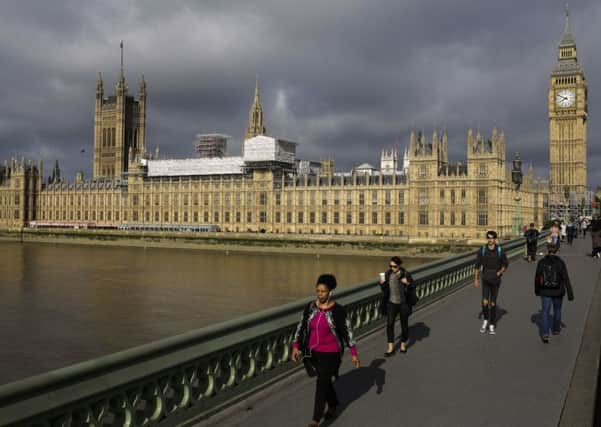What previous hung parliaments have taken place in the UK?


What is a hung parliament?
Described as a parliament in which no political party has enough seats to secure an overall majority, a hung parliament is declared in Britain when a single party fails to win the required majority of 326 out of the possible 650 seats available in the House of Commons.
What happens next?
The incumbent PM is invited to stay in office until parliament is reconvened and the largest party, in this case the Conservatives, is given the chance to try and form a government - either through coalition or by becoming a minority. Should a minority government be formed (which looked likely until the DUP stepped in) the largest party would have to rely on the help of the other parties to vote legislature through.
Advertisement
Hide AdAdvertisement
Hide AdIf neither of these are agreed upon then parliament is dissolved and another General Election is called.
Has it happened before?
Yes, but only twice since 1929, once in 1974 and most recently in 2010 when David Cameron was forced to form a coalition with the Lib Dems. In total there have only been six hung parliaments since the beginning of the 20th century.
What happened in 1974?
The general election was held in February of that year, with the two major parties, Labour and the Conservatives, both falling short of an overall majority.
The incumbent Prime Minister of the time was Conservative Edward Heath, and it has been expected that his party would have returned a majority and a victory, however it was Labour who in fact gained the most seats (301 to the Conservative’s 297).
The failure to reach a majority for both parties was due in part to North Ireland, where the vote was spread amongst local parties, Scotland, where the SNP gained six MPs (rising from 1 to 7) and Wales, where the first Plaid Cymru MPs were elected.
Heath then made an attempt to create a minority government but it struggled without the support of either the Liberal party or the Northern Irish parties.
Labour leader and former Prime Minister Harold Wilson, was then invited to try and do the same by the Queen, however, though his minority government struggled on, it was clear a second election was needed and was duly called in the October of the same year.
The Labour party then recorded a small majority, that would see Wilson resign two years later - to be replaced by James Callaghan - and the party ousted before the turn of the decade by the Conservative Party under Margaret Thatcher.
What happened in 2010?
Advertisement
Hide AdAdvertisement
Hide AdThe most recent of the two previous hung parliaments saw Gordon Brown’s Labour party defeated in a closely fought General Election by David Cameron’s Conservatives. Unable to gain a majority top figures from the Tories rushed to do a deal with Nick Clegg’s Lib Dems, the third biggest party at the time.
Discussions followed with both Labour and the SNP, but it was the Conservatives who held Clegg’s ear and after continued negotiations in which Gordon Brown withdrew as Labour Leader, the Lib Dems eventually decided to form a government with the Conservatives.
The Conservative–Liberal Democrat Coalition government led by Prime Minister David Cameron and Deputy Prime Minister Nick Clegg took office shortly thereafter.
During a fairly stable tenure, the Lib Dem leadership was criticised for breaking its pre-election pledge not to raise tuition fees, causing the party to split over the issue, and led to them struggling to maintain credibility and subsequently fairing poorly in the 2015 elections which saw the Conservatives and David Cameron re-elected with a majority.